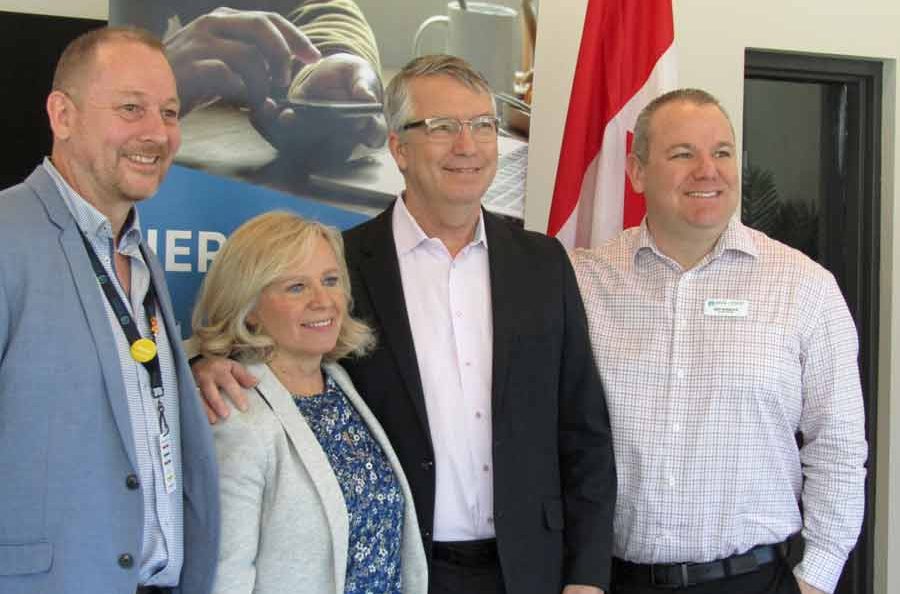GUELPH – The Canadian Mental Health Association and Compass Community Services will each receive federal funding to train distress line staff and volunteers on issues involving equity, diversity, Indigenous culture and social justice.
CMHA Waterloo Wellington (CMHA WW) will receive $245,161 and Compass $78,230, Guelph MP Lloyd Longfield announced at an event at the CMHA’s new child services centre in Guelph on March 7.
The funding will allow both agencies to identify and fill gaps in equity, diversity and inclusion, Longfield said – part of $3.4 million in funding to 18 organizations across the country through the Distress Line Equity Fund this year and a total of $8 million over the next few years.
Racism affects the mental health of people who experience it, Longfield said, and many newcomers to Canada have come from war-torn countries and may be facing trauma for those reasons.
Indigenous people have their own traditional ways of dealing with health and mental health and may not be inclined to call a distress line, he added.
And while distress call volunteers are empathetic by nature of the job, “our mission is to ensure the service caters to diversity,” said Will Wycherley, director of support services for Compass.
“We want to foster empathy and inclusivity and we want to dismantle barriers.”
As well as the distress line, Compass runs:
- TeleConnect, a call-out service to people who would benefit from a daily check-in;
- the Seniors Offering Support or SOS line, where seniors call other seniors on a list just to chat and make sure they are okay; and
- the 2SLGBTQIA+ distress phone line for folks in the queer community.
Mainly, Wycherley doesn’t want people not to call because they fear stigma or judgement or misunderstanding on the other end of the line.
CMHA WW CAO Helen Fishburn said her agency has been working with Black and Indigenous leaders to add deeper understanding throughout the organization.
“This funding means we can do it in a planned way,” she said.
Fishburn noted the Here 24/7 distress line at her agency turns 10 years old on April 1, “and it revolutionized the way we serve the community,” she said.
Prior to the distress line, clients had to navigate 12 different organizations to gain service, do 12 different intakes, tell their story 12 times, and then find themselves on 12 different waiting lists for service.
“It was a nightmare, especially for clients in distress,” Fishburn said.
The Here 24/7 line and the Compass distress lines now act as portals to all mental health services in the community.
“This Government of Canada program will help ensure distress lines and centres are able to respond to the needs of everyone who calls, including populations most affected by suicide, such as Indigenous peoples, members of 2SLGBTQIA+ communities, newcomers, veterans, older adults, and those living in remote communities,” states a release from Longfield’s office.
Minister of Mental Health and Addictions Ya’ara Saks added, “When people feel heard and understood, no matter their race, religion, culture, or socio-economic background, we can save lives.
“With access to this funding, these important service organizations will be able to increase their ability to support and respond to the diverse needs and experiences of those who reach out to them.”
Fishburn said she will report to the community the progress and any new initiatives that come from the funding.
Distress line numbers include:
- Here 24/7, 1-844-437-3247 (HERE247), for addictions, mental health and crisis services;
- Compass Community Distress Line, 1-888-821-3760; and
- 9-8-8 National suicide distress line. Callers will be referred to local agencies for help.




